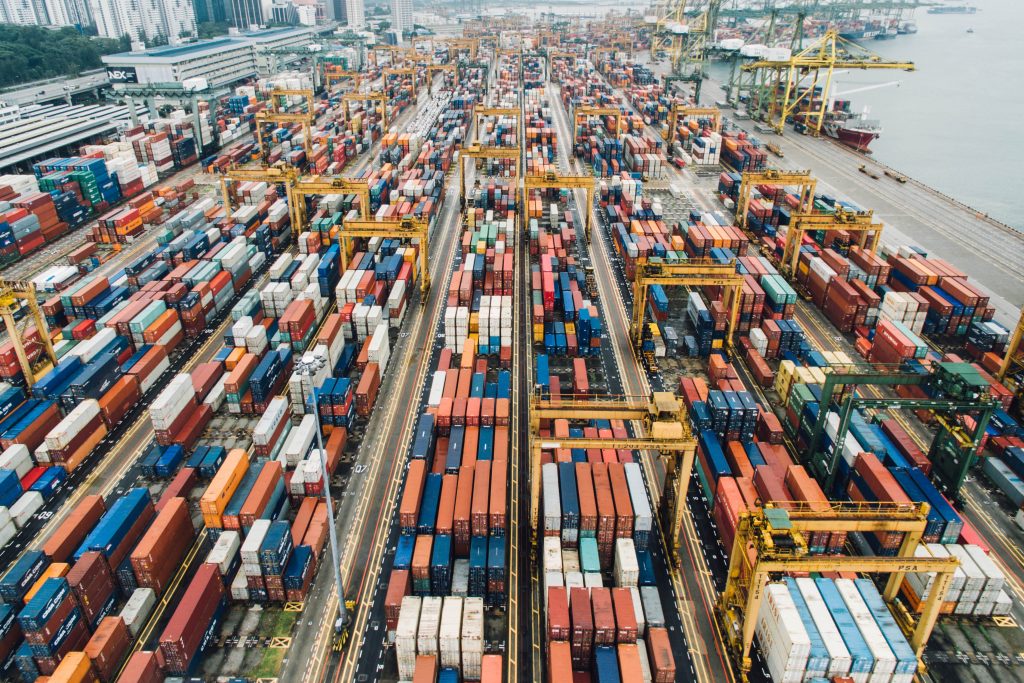Despite the ongoing health and economic crises, the industrial and logistics sector remains one of the bright spots in the Philippines’ real estate industry, according to industry panelists of Santos Knight Frank’s latest webinar.

The leading industrial real estate expert in the Philippines, Santos Knight Frank held its second annual forum with more than 600 attendees last Tuesday, May 26th. Called “The Future of Logistics: Moving Beyond the Pandemic”, the discussion this year focused on the industry’s outlook for the rest of the year as the Philippines continues to fight the COVID-19 pandemic and begins to resuscitate the economy.
The panelists from the industry include William B. Chiongbian II, Group President & CEO of Fast Logistics Group; Garrick Thompson, Chairman of the AmCham Infrastructure & Logistics Committee and Senior Sales Manager of FedEx Philippines; Agnes Degala, Vice President of Sales & Operations in Orca Cold Chain Solutions; and Chito Zaldarriaga, President of the Philippine Ecozone Association (Philea). Rick Santos, Chairman & CEO of Santos Knight Frank, moderated the panel discussion.
Players in the industrial and logistics sector are generally optimistic about the future post-ECQ, with about 60% of respondents during the webinar expressing optimism on business outlook in the next six months versus 11% who were pessimistic.
“During the ECQ period, demand for industrial and logistics space has risen for essential goods. In the following months, we expect demand to be more stable compared to the other real estate sectors. This demand is encouraged by the shift to e-commerce and the subsequent effects on demand for logistics, cold chain, warehouse, and other industrial services,” says Kash Salvador, Associate Director, Investment & Capital Markets.
Here are 6 key takeaways from the forum:
-
Recovery plan and coronavirus response
The pandemic situation has negatively affected supply chain, mobility, cash flow, and the demand for non-essential products. During the ECQ, industrial and logistics players have pivoted their businesses to continue servicing essential goods and operate at skeletal workforce.
Ad hoc local response teams were put together to optimize services during the quarantine period while complying with the health and safety requirements mandated by the government, says FedEx and Fast Logistics.
Meanwhile, cold storage players such as Orca Cold Chain Solutions remained open during the ECQ since they primarily handle essential items.
Ecozones have responded to the COVID-19 situation by providing employee housing and transportation and continuing to extend full services despite having only a smaller number of locators operating. “We cannot stop what we’ve been doing on a normal basis. We were able to be more lenient in payment terms on a case-to-case basis,” adds Chito Zaldarriaga of Philea.
-
Changes in product offering by industrial parks
The current situation has surfaced the need for integrated communities. Zaldarriaga states that an industrial park has to be a safe community, providing components such as schools, medical facilities, accessible housing facilities, and best possible telecommunication services and satellite warehouses in response to work-from-home arrangements. Post-pandemic, cashless and contactless transactions for shuttle services are also being strongly considered.
“One has to realize that after we retrofit the entire industry, the innovations designed to function in a COVID-19 environment will still make so much sense after that”, adds Zaldarriaga.
-
Role of technology
Real estate players have been prioritizing efficiency in transactions. Thompson emphasizes the need for stronger warehousing infrastructure and to adopt e-commerce solutions to lessen physical contact and accelerate movement within the supply chain. Orca Cold Chain Solutions has been integrating systems in documentation processes and other paperless transactions to eliminate bottleneck queuing.
-
Industrial REITs
Santos Knight Frank believes there is a large opportunity for industrial REITs (Real Estate Investment Trusts) in the Philippines. Recently, Philippine regulators have revised the rules for REITs, making the policy environment more favorable and encouraging developers and owners to transfer their real estate assets into a REIT, generate capital, and re-invest in future developments.
-
The Philippines as a manufacturing destination
“With the right real estate infrastructure, and support from the government, we’ve got to act together within the industrial sector that the Philippines is still one of the best manufacturing destinations. We need to work together to enhance what this country has to offer”, stresses Zaldarriaga.
-
Outlook for the industry
Respondents of the poll posted during the webinar are split about their forecast on demand by their existing customers for the next six months.
Degala says automated facilities won’t be scaling down expansions to continue servicing food manufacturers.
“It’s interesting to see the emergence of e-commerce and how it plays out with the industrial sector and the regional supply chain,” says Thompson.
Quality of food, health and wellness will be taking a front seat, says Chongbian.
The local industrial sector is expected to remain resilient amid the pandemic. Industry players are encouraged to rethink real estate strategies and take advantage of opportunities that have arisen from the crisis.
“The industrial sector is all about the basics: basic space, food security, storage, and all the things you need in a crisis. This crisis is a realization that people are always going to need the industrial and logistics sector, and there is huge opportunity here”, says Rick Santos of Santos Knight Frank.
- Tags:


